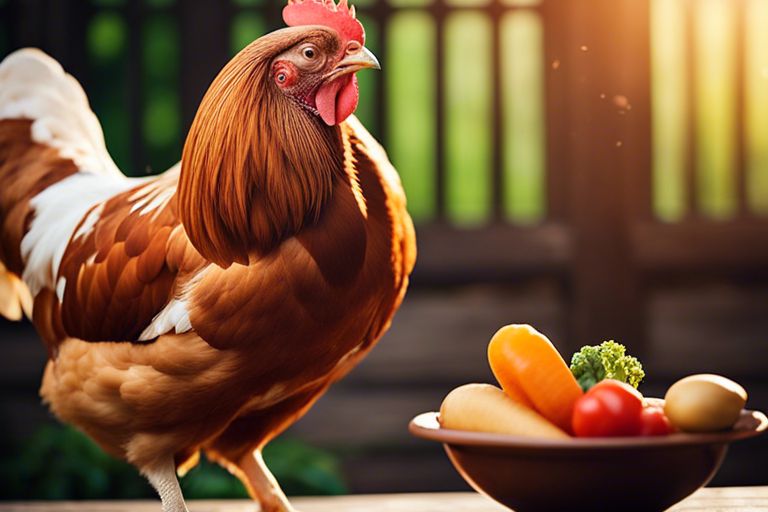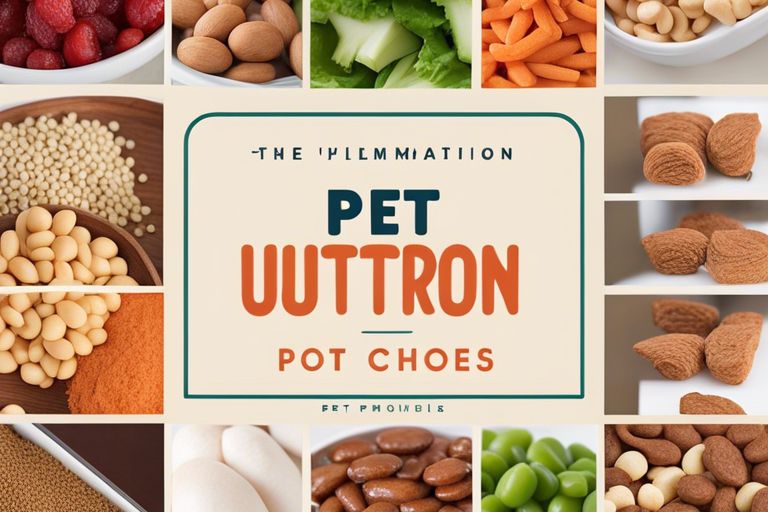Many poultry enthusiasts understand the significance of providing proper nutrition for their flocks. Just like any animal, hens require a balanced diet to thrive and lay nutritious eggs consistently. The right combination of proteins, vitamins, minerals, and carbohydrates not only supports their overall health but also impacts the quality of their eggs. In this post, we probe into the importants of hen nutrition and how it plays a crucial role in maintaining healthy, productive hens.
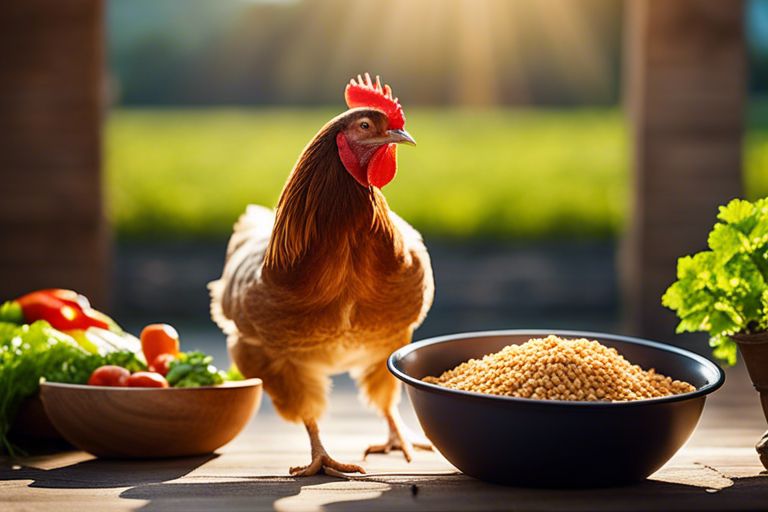
Essential Nutrients for Hens
Macronutrients: Proteins, Carbohydrates, and Fats
For hens to maintain optimal health and productivity, a well-balanced diet rich in macronutrients is crucial. Proteins are crucial for muscle development, egg production, and feather growth. Carbohydrates provide energy for daily activities and egg laying, while fats play a key role in hormone regulation and maintaining healthy feathers and skin.
Micronutrients: Vitamins and Minerals
Fats. Micronutrients, such as vitamins and minerals, play a vital role in supporting the overall health and well-being of hens. Vitamins like A, D, E, and B-complex are crucial for proper growth, immunity, and eggshell formation. Minerals such as calcium, phosphorus, and potassium are necessary for strong bones, muscle function, and metabolic processes.
Another critical micronutrient for hens is selenium, which acts as an antioxidant and plays a role in thyroid function. A deficiency in selenium can lead to poor egg production and weak immunity. It’s important to provide hens with a well-rounded diet that includes a variety of micronutrients to ensure their overall health and productivity.
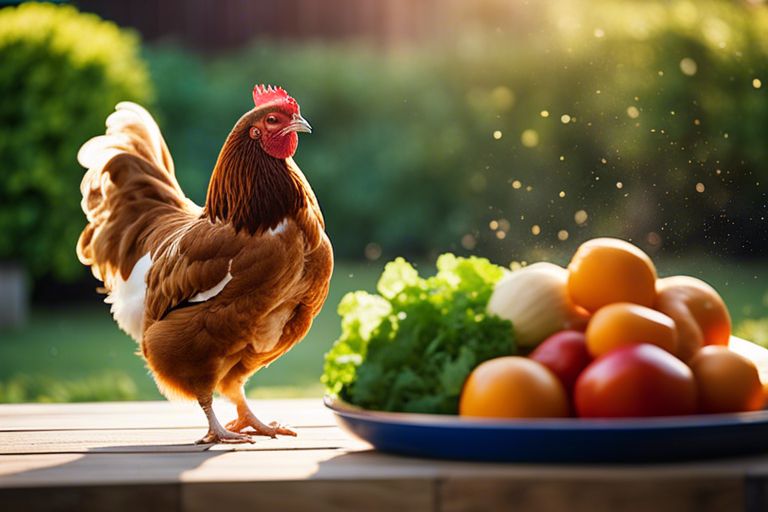
Feeding Strategies for Optimal Health
Commercial Feeds vs. Natural Diet
Optimal nutrition is crucial for the health of your hens. When considering feeding strategies, it is important to weigh the benefits of commercial feeds against a natural diet. Commercial feeds are convenient and formulated to provide the necessary nutrients for hens. However, a natural diet consisting of seeds, greens, insects, and kitchen scraps can offer a more diverse range of nutrients and promote overall well-being.
Supplementation and its Impact
Feeding your hens a balanced diet is key to their health, but supplementation can play a crucial role in filling any nutritional gaps. Optimal supplementation can improve egg quality, strengthen immune function, and promote overall vitality in hens. It is important to understand the specific needs of your flock and consult with a poultry nutritionist to determine the right supplements to incorporate into their diet.
Plus, factors such as age, breed, production stage, and environmental conditions can all influence the supplementation requirements of your hens. Monitoring their health and performance regularly can help you adjust their diet and supplementation regimen to ensure they are receiving optimal nutrition for maximum health and productivity.
Common Nutritional Deficiencies and Prevention
Recognizing Deficiency Symptoms
On your journey to ensuring the health of your flock, it is crucial to be able to recognize the signs of common nutritional deficiencies in hens. Lack of specific nutrients can lead to various health issues such as poor egg production, feather loss, weakness, or even more serious conditions. Being observant of your hens’ behavior, appearance, and egg quality can help you identify and address deficiencies promptly.
Preventive Measures and Diet Adjustments
Nutritional deficiencies can be easily prevented through a well-balanced diet for your hens. Ensuring they have access to a quality layer feed containing imperative vitamins, minerals, and protein is fundamental. Supplementing their diet with fresh fruits and vegetables, calcium sources, and occasional treats can also contribute to their overall health and prevent deficiencies. Regularly checking that feed is not expired or contaminated is imperative to maintaining a nutritious diet for your flock.
Nutritional deficiencies can have a significant impact on the health and productivity of your hens. Ensuring they have access to a well-rounded diet is the first line of defense against deficiencies. Consult with a poultry nutritionist or veterinarian to create a tailored diet plan that meets the specific needs of your flock and prevents any nutrient gaps that could affect their health.
Recognizing: By being proactive in monitoring the health and behavior of your hens, you can detect signs of nutritional deficiencies early on. Keep a close eye on their overall appearance, egg quality, and activity levels to identify any potential issues and address them promptly to prevent further complications.
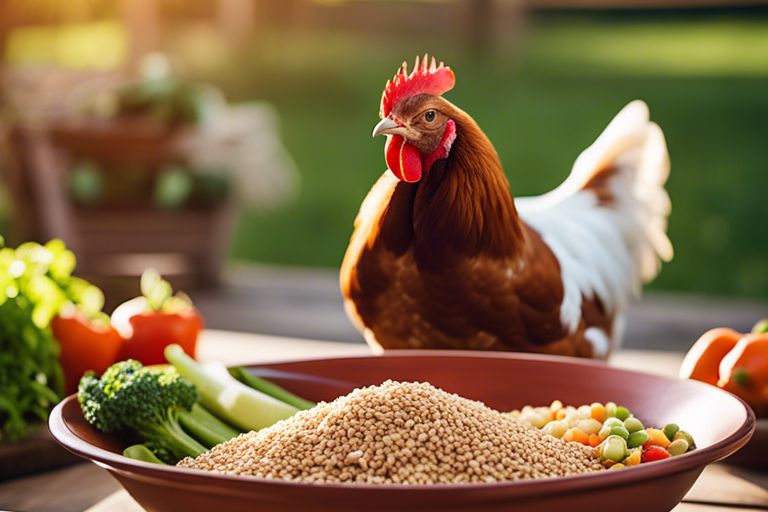
Managing Nutrition for Different Life Stages
Nutritional Requirements of Chicks vs. Adult Hens
On the farm, it is crucial to understand the different nutritional requirements of chicks compared to adult hens. Chicks have higher protein needs to support their rapid growth and development, while adult hens require a balanced diet to maintain their health and support egg production. Ensuring that the feed provided is appropriate for the life stage of the hens is important for their overall well-being.
Adjusting Feeds for Laying Hens
Chicks transition into laying hens as they mature, and their nutritional needs change accordingly. Laying hens require a diet that is higher in calcium to support the production of strong eggshells. It is important to adjust their feed to meet this increased demand for calcium while still providing all the important nutrients they need to stay healthy and productive.
Regarding managing the nutrition of different life stages of hens, it is crucial to understand the specific requirements of chicks versus adult hens. By adjusting feeds accordingly, you can ensure that your hens are healthy, happy, and able to produce quality eggs consistently. Proper nutrition is the foundation for maintaining a thriving flock and maximizing their overall productivity.
Summing up
The importance of proper nutrition for healthy hens cannot be overstated. Providing a balanced diet with important nutrients is crucial to ensure their overall health, egg production, and immune system function. By understanding their specific dietary needs and offering a variety of high-quality feeds, grains, vegetables, and supplements, poultry owners can help their hens thrive and live a long, happy life. Monitoring their food intake, water consumption, and overall well-being is key to preventing diseases, disorders, and deficiencies that can significantly impact their productivity and longevity. Be mindful of, healthy hens start with proper nutrition!
FAQ
Q: Why is proper nutrition important for hens?
A: Proper nutrition is necessary for hens as it supports their overall health, egg production, and immune system function.
Q: What should be included in a hen’s diet for optimal nutrition?
A: A hen’s diet should consist of a balanced mix of protein, carbohydrates, fats, vitamins, and minerals. High-quality commercial feed or a mixture of grains and greens can provide the necessary nutrients.
Q: How does nutrition impact egg production in hens?
A: Nutrient-dense diets help hens produce high-quality eggs consistently. Calcium, necessary amino acids, and vitamins like D3 are crucial for strong eggshells and overall egg quality.
Q: Can improper nutrition lead to health problems in hens?
A: Yes, inadequate nutrition can result in various health issues such as poor feather quality, decreased egg production, weak immune system, and metabolic disorders in hens.
Q: How can one ensure hens are getting proper nutrition?
A: Regularly providing fresh water, high-quality feed, access to green forage, and supplemental minerals like oyster shells can help ensure hens receive adequate nutrition.
Q: Are there specific nutritional requirements for different stages of a hen’s life?
A: Yes, hens have different nutritional needs during stages like chickhood, pullet development, laying period, and molting. Adjusting their diet to meet these specific requirements is crucial for their health and productivity.
Q: What are some signs that indicate hens may be lacking proper nutrition?
A: Signs of nutritional deficiencies in hens may include decreased egg production, abnormal eggshells, feather loss, lethargy, weight loss, and behavioral changes. Consulting a poultry nutritionist can help address these issues effectively.
